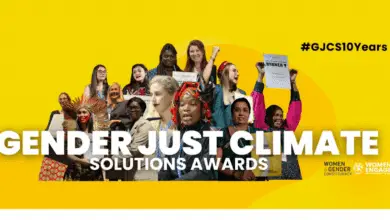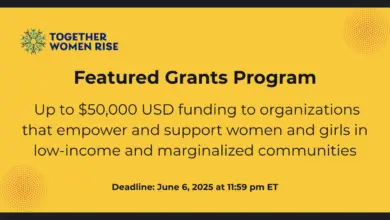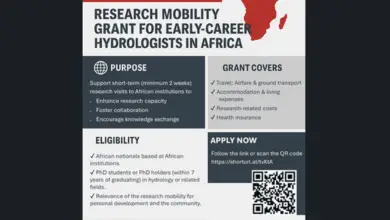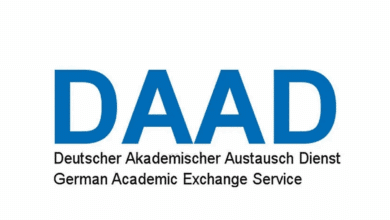Call for Applications: the 2025 Cambridge-Africa ALBORADA Research Fund (Up to £20,000 in funding)
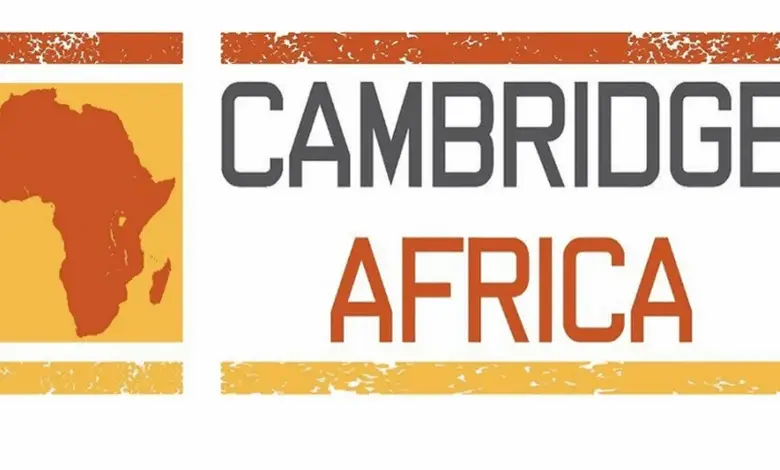
Closing Date: 5 September 2025
Call for Applications: the 2025 Cambridge-Africa ALBORADA Research Fund (Up to £20,000 in funding)
2025 Call for Applications
The Cambridge-Africa ALBORADA Research Fund was established in 2012, with generous support from The ALBORADA Trust. The Fund supports pairs of researchers from the University of Cambridge (or an affiliated institution such as the Wellcome Trust Sanger Institute, NIAB and British Antarctic Survey) and African institutions, across all disciplines, to initiate and/or strengthen research collaborations. To date, 367 awards have been made, to enable Cambridge researchers to engage with African colleagues from 38 African countries. Some awardees have been able to use the preliminary results from their seed fund / research collaboration to apply for and win significant funding (e.g. Royal Society/Leverhulme Awards, Global Challenges Research Fund, etc.).
The Research Fund competitively awards grants of between £1,000 and £20,000, for:
- research costs (such as reagents, fieldwork and equipment)
- research-related travel between Cambridge and Africa
- conducting research training activities in Africa (e.g. setting up courses/workshops).
Eligibility
- The purpose of the Cambridge-Africa ALBORADA Research Fund is to encourage research, training and engagement activities between Cambridge and Africa. Applicants from Cambridge apply jointly with applicants from universities/ institutes in Africa and co-create the projects. It is important that the funding is not simply used to provide services that will be carried out at one institution on behalf of the other, and that true collaboration is demonstrated in the application.
- An important function of the Cambridge-Africa ALBORADA Research Fund is to act as a seed fund/catalyst to enable the development of new research activity and further joint funding applications. Priority will be given to applications that build new partnerships (or expand existing ones) with the potential for long-term collaboration. Projects should also ideally strengthen research capacity of the Africa researcher and/or the African research institution/university. Both applicants must be at post-doctoral level or above, and by completing an application, it is understood that they are both doing so with support from their Head of Department or equivalent. Both applicants should have a formal link to a research group/department/faculty in their home institution. It is also expected that both applicants remain employed beyond the end date of their ALBORADA awards. The awards are not intended to support post- graduate
students, however, limited support for students will be considered when there is a clear demonstration that this will enhance the relationship between the Cambridge and African Principal Investigators (PIs). - The Cambridge applicant must be either working at the University of Cambridge, or at a Research Institute affiliated with the University. Previous successful Cambridge applicants have included those from Wellcome Sanger Institute, National Institute of Agricultural Botany (NIAB) and British Antarctic Survey. The Cambridge applicants will act as the lead applicants, for administrative purposes, as the awards have to be paid to their Cambridge Departments/Faculties/Institutes.
- The African applicant must be based in an African Research Institution or University.
Application
Final submissions should include the following documents (uploaded online):
- Case for support, which includes details of both the research and collaboration plans
- An itemised budget (template provided)
- A letter of support from the department/faculty of the Cambridge PI.An email from an institutional email account is also acceptable
- A letter of support from the department/institution of the African PI
- CVs (maximum 2 pages) for both the Cambridge and Africa PI
The details of two suggested referees are also required; these should be individuals who have no conflicts of interest with the project or investigators (e.g. they should not be from either applicants’ department).
Click Here To Apply
Follow Opportunities For Everyone on Social Media

